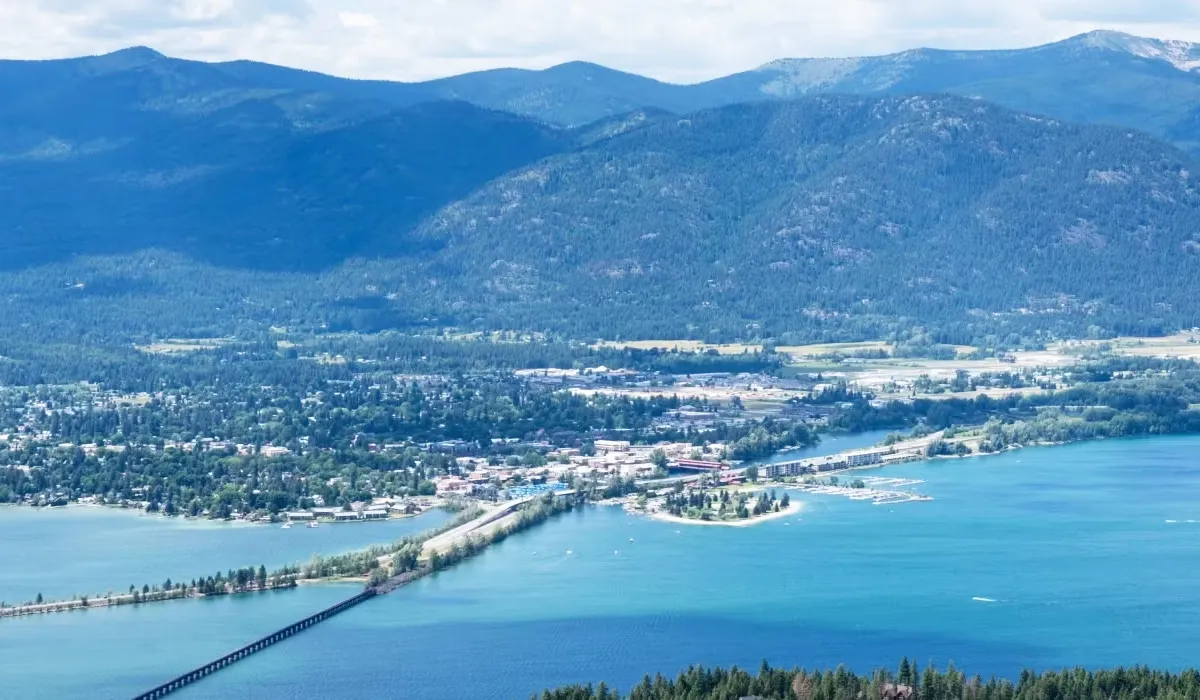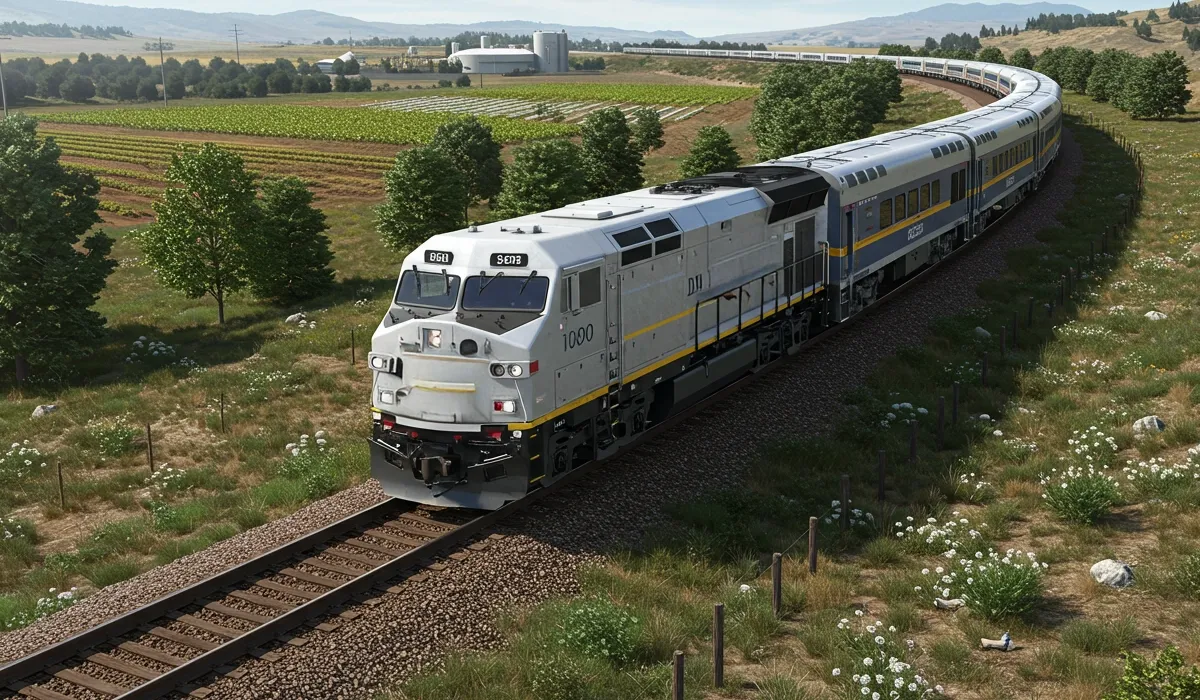Overview of the Intermodal Railyards

Sandpoint Rail Terminal, operated primarily by BNSF Railway and Union Pacific, features the Sandpoint Yard and adjacent switching facilities, handling bulk commodities, intermodal containers, and regional freight with direct connections to Class I networks.

Intermodal operations at Sandpoint include specialized transfer tracks and sidings for seamless movement between rail, truck, and local distribution, supporting grain, timber, and manufactured goods with modern loading and unloading capabilities.
Market Size and Economic Impact
Sandpoint’s rail infrastructure moves over 20 million tons of freight annually, supporting more than 1,200 regional jobs and generating an estimated $350 million in direct and indirect economic impact, ranking among Idaho’s top logistics hubs.
Competitive Landscape
- BNSF Railway: Operates Sandpoint Yard and mainline funnel, handling bulk, intermodal, and manifest freight across northern Idaho
- Union Pacific: Shares trackage rights, connecting Sandpoint to western and midwestern distribution centers for agricultural and industrial cargo
- Amtrak Empire Builder: Provides daily passenger service, making Sandpoint Idaho’s only active intercity rail station
Opportunities
- Agricultural Expansion: New grain shuttle loader and storage facilities drive increased outbound shipments and regional farm income
- Cross-Border Trade: Enhanced connections to Canadian Pacific and CN Rail networks support growing USMCA corridor traffic
- Industrial Development: Planned rail-served industrial parks attract manufacturing and logistics investment to Bonner County
Challenges
- Track Congestion: High train volumes through the Sandpoint funnel create scheduling and capacity challenges for freight and passenger service
- Aging Infrastructure: Upgrades needed for bridges, sidings, and switching equipment to support heavier railcars and modern operations
- Seasonal Disruptions: Winter weather and flooding can impact train schedules and yard efficiency, requiring adaptive planning
Trade and Logistics Trends
- Grain Shipments: Steady growth in wheat, barley, and pulse crop exports to Pacific Northwest ports and Midwest processors
- Timber Products: Continued movement of lumber, plywood, and wood chips from northern Idaho mills to national markets
- Intermodal Growth: Increasing containerized freight volumes driven by regional manufacturing and e-commerce distribution
Future Outlook
- Capacity Expansion: BNSF and Union Pacific plan additional sidings and yard improvements to accommodate rising train volumes
- Technology Integration: Implementation of advanced signaling and train control systems for improved safety and throughput
- Sustainable Operations: Investments in fuel-efficient locomotives and emissions reduction programs position Sandpoint for green logistics growth
Recommendations
- Yard Modernization: Upgrade switching and loading facilities to handle 286,000 lb railcars and intermodal containers efficiently
- Regional Collaboration: Strengthen partnerships with Canadian railroads and local industry to expand cross-border trade and logistics
- Workforce Development: Invest in training and recruitment to support skilled rail operations and maintenance for long-term growth
Sandpoint, ID
Sandpoint anchors northern Idaho’s rail network, linking the Pacific Northwest, Midwest, and Canadian provinces, and serving metropolitan regions with a combined population exceeding 10 million through integrated freight corridors.
Sandpoint’s strategic location at the convergence of east-west and north-south rail corridors provides direct access to Seattle, Chicago, and Canadian gateways, making it a critical interchange for transcontinental freight and passenger movement.
Where you'll go
Things to know
Rail Operations
Rail Heritage: Sandpoint’s rail history dates to the 1880s when Northern Pacific and Great Northern established the original junction
Facilities & Services
Lake Pend Oreille: The city’s location on Idaho’s largest lake provides natural access for timber and agricultural exports via rail
Location Benefits
Grain and Timber Economy: Regional farms and mills rely on Sandpoint’s rail connections for efficient shipment to national and export markets
Additional Information
Amtrak Gateway: As Idaho’s only Amtrak stop, Sandpoint supports tourism, business travel, and regional connectivity for passengers